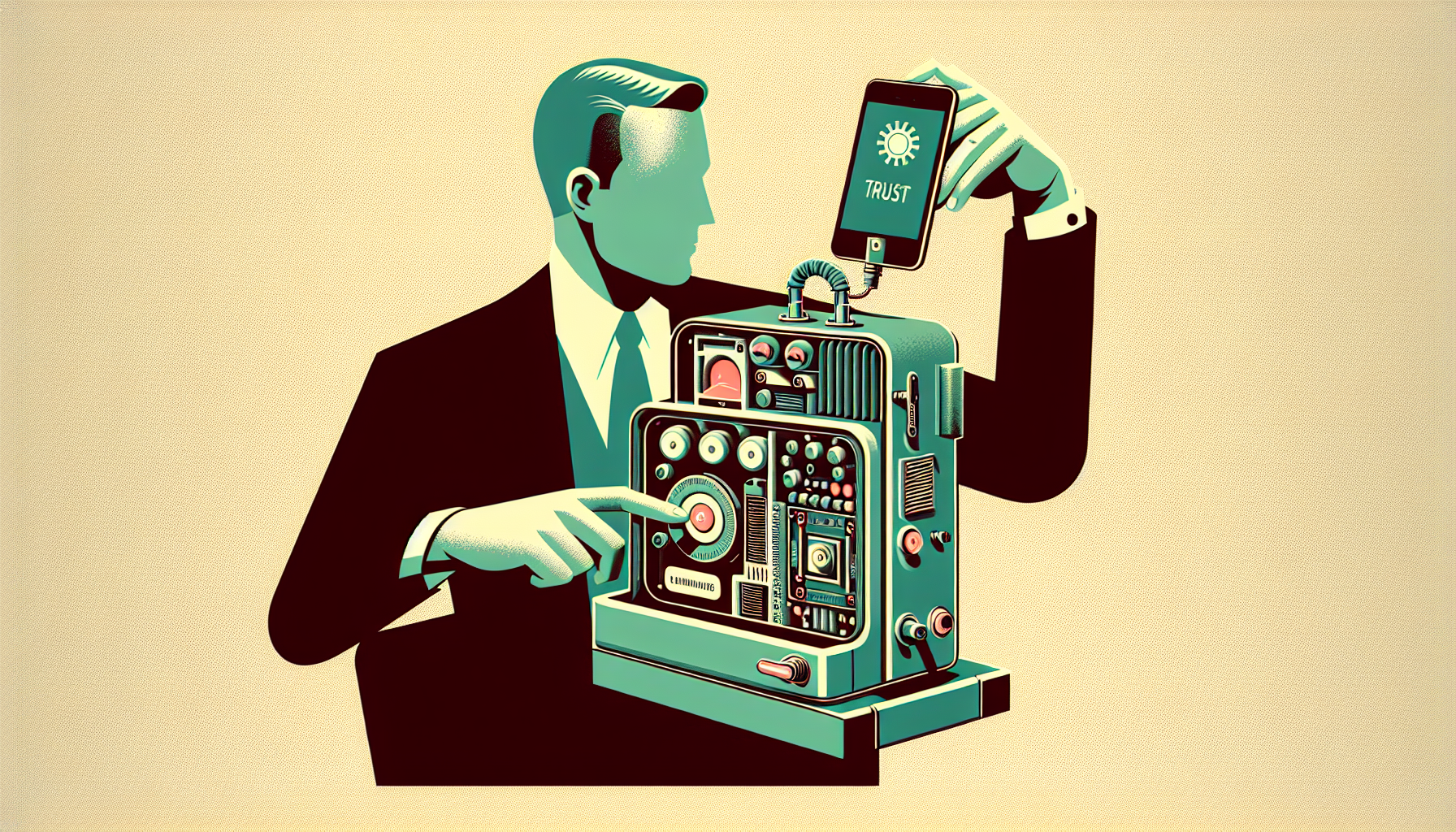We live in interesting times—times when you can ask your phone what the capital of Botswana is, and, within seconds, receive a confident answer (it’s Gaborone, by the way). But now that machines speak to us with a certainty often lacking at dinner-table debates, an age-old question has found a new digital home: can we trust what these thinking machines tell us? Welcome to the philosophical intersection of artificial intelligence and epistemic trust.
The Old Problem in a New Suit
Epistemic trust—our willingness to believe information comes from a trustworthy source—has always been a bit tricky. Before modern times, you’d put your faith in elders, teachers, or the odd town wizard. Then came books and newspapers. Now, we get our facts not just from experts, but from algorithms and vast digital models.
With AI, things change. Not only does it have access to more facts than anyone in history, but it packages them in perfect grammar and airtight confidence. The question is, should we believe AI the same way we might believe a humble professor, or that friend who always has the trivia night answers?
When Machines Speak: The Lure of Certainty
AIs, especially language models, generate answers that sound certain—sometimes more certain than the humans who programmed them. There’s a reason for that: confidence sells. Our brains love a sure answer, even if, like an internet cat video, it’s only sometimes based in reality.
But here’s the twist: machines don’t know what they know. They process patterns, statistics, and probabilities in complex ways, but they don’t possess awareness or belief. When a large language model says, “Water boils at 100°C,” it’s not because it *knows* this in any conscious sense, but because its training data and mathematical weights strongly point in that direction. When it says, “The Eiffel Tower is in Barcelona,” well, it’s just having a statistical hiccup (and possibly needs a vacation).
The Authority Illusion
Most of us grew up thinking books and teachers were authoritative. When AI talks, it uses similar markers of authority: strong words, clear explanations, quick answers. But the comfort of authority is ambiguous here. There’s no lived experience, no intention, and certainly no personal stake in the claims. The AI is only as strong—or as error-prone—as its data and design.
And let’s be honest: even the best AI makes mistakes, some subtle, some spectacular. Sometimes it compounds its errors with remarkable assertiveness. There’s an old saying: “Often wrong, never in doubt.” AI seems to have taken that to heart.
Epistemic Trust and Human Judgment
All information involves a leap of faith. When we hear something, we judge: Does this source understand the subject? Could they be biased? Are they bluffing? With AI, these questions become harder to answer. The machine can’t lie (since it doesn’t intend anything), but it can be misleading. It can confidently output outdated facts or plausible-sounding nonsense—a phenomenon known in the trade as “hallucination” (which, come to think of it, is oddly comforting. Machines hallucinate too? Maybe they’re not so different from us).
So, can we trust the machine? Sometimes. The key is to treat it not as an oracle, but as what it really is: one source among many. Double-check important answers. Use AI as you might a helpful, non-judgmental intern who happens to read very quickly, but sometimes makes things up with a straight face.
What About AI’s Sources?
When we trust a human expert, we evaluate their credentials, transparency, and track record. With AI, tracing the exact source for a given answer is—currently—often impossible. The information is synthesized from billions of data points. Sometimes, there’s no citation, just an answer.
If AI could “show its work”—by explaining, “I saw this in a 2012 encyclopedia,” or “32 authoritative websites agree”—that would certainly help. Some systems are starting to do this, but it’s not yet universal. Until then, the information has an air of mystery. Epistemic trust, after all, is stronger when you can see the receipts.
The Future of Trusting Machines
As AI improves, so too will its reliability—and our dependency on it. In the pursuit of “artificial general intelligence,” we may someday invent digital minds that not only spit out answers but assess their own certainty, review their knowledge gaps, and cross-examine themselves before bold pronouncements. At that point, trusting the machine might become a little less nerve-wracking—though I suspect most philosophers (and trivia night participants) will remain healthily skeptical.
So, Should You Trust AI?
Like trusting a relative who tells tall tales or a weather app on a suspiciously sunny day: sometimes yes, sometimes no. The wisest approach is cautious collaboration. Use AI as a tool, not a replacement for your own thoughts and checks. Celebrate its brilliance, question its confidence, and, above all, remember: epistemic trust isn’t about blind faith. It’s about knowing where the knowledge comes from and keeping a little room for doubt.
Machines may be getting better at thinking, but humans can still judge. And, when in doubt, there’s always that trusted human tradition—asking a second opinion (or, for the bold, consulting several AIs and watching them argue). One day, perhaps, epistemic trust in machines will be as natural as trusting the sun to rise. But until then, keep your thinking cap close—and your skeptical eyebrow closer.

Leave a Reply